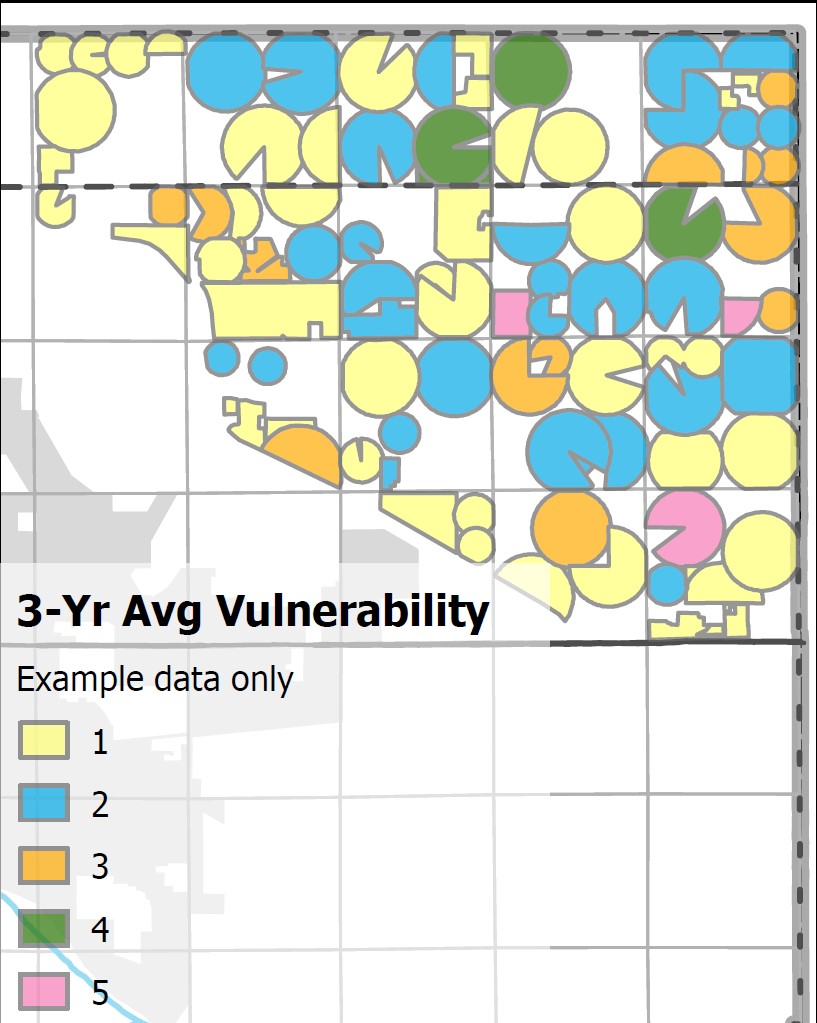In February 2023, the Lower Loup Natural Resources District Board of Directors passed a rule to allow the Lower Loup NRD (LLNRD) to assess all agricultural fields within the District's three groundwater quality management areas annually for the purpose of locating potentially problematic sites. Individual fields are ranked after reviewing reported parameters including soil nitrates, water nitrates, organic matter, historic yields, and continued low nitrogen use efficiency. Fields found by the assessment to be high-impact fields will result in the operator and owner needing to collaborate with District personnel to develop a nutrient management plan.
Each plan will evaluate historical fertilizer recommendations to determine potential improvements including better scheduling, fertilizer application rates, and fertilizer types. The LLNRD will also look at other potential conservation measures to improve overall efficiency. Other practices could include implementing soil moisture sensors, installation of Variable Rate Irrigation (VRI), and better soil sampling practices to more accurately represent the field and provide more reliable fertilizer recommendations.
The nutrient management plan could also include changes to tillage or cover crop practices to improve soil health. Those fields found by the modeling effort to be approaching a high-impact status will not require a plan. But as a service to the operator and owner, they will receive notice of this status and be provided with options for improving total nitrogen use efficiency and presented with suggested conservation measures that could be implemented.
With this improved outreach and assessment of the groundwater quality management areas, the LLNRD will help address the ongoing water nitrate problem that continues to impact groundwater resources, including drinking water, in parts of the District.
